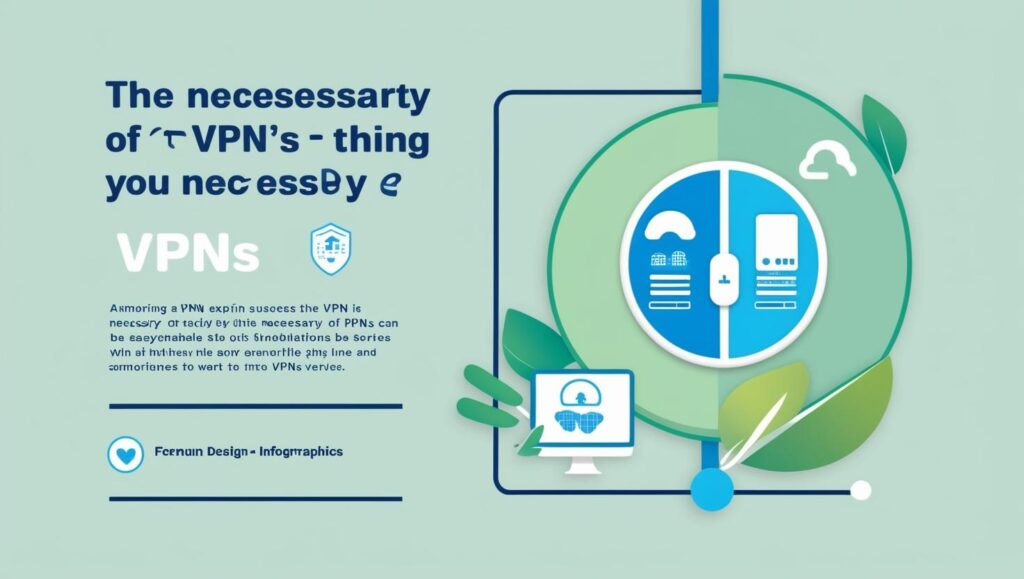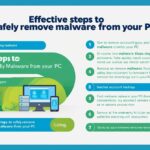In an era marked by digital connectivity and online vulnerability, Virtual Private Networks (VPNs) have emerged as crucial tools for internet users seeking enhanced privacy and security. As cyber threats become increasingly sophisticated, the importance of understanding how VPNs work and whether they are necessary for your personal or professional life cannot be overstated. This article delves into the fundamentals of VPNs and helps you assess whether incorporating one into your digital toolkit is essential.
Exploring Virtual Private Networks: A Guide for Users
Virtual Private Networks, commonly known as VPNs, are services that encrypt your internet traffic and route it through a server located elsewhere in the world. This process masks your IP address, making your online actions virtually untraceable and protecting your identity from prying eyes. The origins of VPN technology can be traced back to corporate settings, where businesses required secure connections for remote employees. Today, VPNs have evolved into versatile tools that provide users with privacy, security, and the ability to bypass geo-restrictions.
In addition to safeguarding your personal information from cybercriminals, VPNs can be particularly beneficial when using public Wi-Fi networks, which are notorious for their vulnerabilities. With a VPN, the data you send and receive is encrypted, making it significantly harder for hackers to intercept your communications. Moreover, VPNs can help users access content that might be restricted in their region, providing an added layer of convenience and freedom in the digital landscape.
However, like any technology, VPNs come with their own set of limitations. While they offer a higher degree of privacy, they do not make users completely anonymous. Online activities can still be traced through other means, such as cookies and browser fingerprinting. Additionally, the speed and reliability of a VPN connection can vary depending on factors such as server load and geographical distance from the server used. Therefore, understanding both the benefits and limitations of VPNs is crucial for making informed decisions about their use.
Evaluating the Necessity of VPNs in Today’s World
As the digital landscape continues to expand, the necessity of VPNs becomes a topic of frequent debate. For average internet users, the question often revolves around whether the benefits of enhanced privacy and security outweigh the inconvenience of potentially slower internet speeds. In many cases, the answer depends on individual needs and online behaviors. For those who frequently engage in online banking, shopping, or access sensitive data, a VPN can serve as an invaluable tool to thwart cyber threats.
Moreover, the growing trend of remote work has elevated the importance of VPNs, as employees access company networks from various locations. Businesses rely on VPNs to ensure that their sensitive data is transmitted safely and that remote workers can connect securely to internal systems. In such cases, VPNs are not just beneficial but often required as part of cybersecurity protocols to protect both company and personal information from unauthorized access.
For users in countries with restrictive internet policies, VPNs can be essential for maintaining access to uncensored information and communication channels. They provide a lifeline for individuals seeking to bypass government-imposed firewalls and content blocks. Nonetheless, it’s important for users to remain informed about the legal implications of VPN use in their respective countries, as regulations can vary significantly around the globe.
In conclusion, while VPNs offer significant advantages in terms of privacy, security, and internet freedom, their necessity ultimately depends on an individual’s specific circumstances and online habits. For those concerned about online privacy or facing regional restrictions, a VPN can be a vital resource. However, understanding the technology’s limitations is equally important to avoid overestimating its capabilities. In an increasingly interconnected world, staying informed and evaluating your unique needs will guide you in determining whether a VPN is a necessary addition to your digital arsenal.


